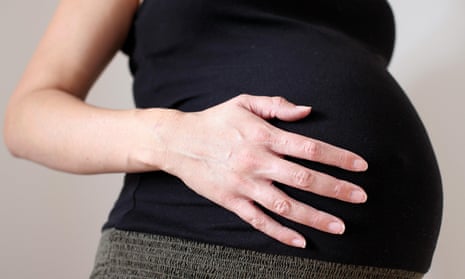That something is not quite right about surrogacy has been evident for some time. Ever since the commercial surrogacy industry kicked off in the late 1970s, it has been awash with scandals, exploitation and abuse. From the infamous “Baby M” case – in which the mother changed her mind and was forced, in tears, to hand over her baby – to the Japanese billionaire who ordered 16 children from different Thai clinics. There has been a total commodification of human life: click; choose race and eye colour; pay, then have your child delivered.
Then there’s the recent case of the American surrogate mother who died; or the intended parents who refused to accept a disabled child and tried to get their surrogate to abort; not to mention the baby factories in Asia.
This week, Sweden took a firm stand against surrogacy. The governmental inquiry on surrogacy published its conclusions, which the parliament is expected to approve later this year. These include banning all surrogacy, commercial as well as altruistic, and taking steps to prevent citizens from going to clinics abroad.
This is a ground-breaking decision, a true step forward for the women’s movement. Initially divided on the issue women came together and placed the issue higher up on the agenda. Earlier in February, feminist and human-rights activists from all over the world met in Paris to sign the charter against surrogacy, and the European Parliament has also called on states to ban it.
The major objections to the Swedish report have come from intended fathers, saying that if a woman wants to be a surrogate, surely it is wrong to prevent her from doing so. It is telling that few women cry over this missed opportunity. It is, after all, demand that fuels this industry.
Surrogacy may have been surrounded by an aura of Elton John-ish happiness, cute newborns and notions of the modern family, but behind that is an industry that buys and sells human life. Where babies are tailor-made to fit the desires of the world’s rich. Where a mother is nothing, deprived even of the right to be called “mum”, and the customer is everything. The west has started outsourcing reproduction to poorer nations, just as we outsourced industrial production previously. It is shocking to see how quickly the UN convention on the rights of the child can be completely ignored. No country allows the sale of human beings – yet, who cares, so long as we are served cute images of famous people and their newborns?
To save surrogacy from accusations like this, some resort to talking of so-called “altruistic” surrogacy. If the mother is not being paid, there is no exploitation going on. Maybe she is doing it out of generosity, for a friend, a daughter or a sister.
The Swedish inquiry refutes this argument. There is no proof, says the inquiry, that legalising “altruistic” surrogacy would do away with the commercial industry. International experience shows the opposite – citizens of countries such as the US or Britain, where the practice of surrogacy is widespread, tend to dominate among foreign buyers in India and Nepal. The inquiry also says that there is evidence that surrogates still get paid under the table, which is the case in Britain. One cannot, says the inquiry, expect a woman to sign away her rights to a baby she has not even seen nor got to know yet – this in itself denotes undue pressure.
In any case, the notion of “altruistic” surrogacy – apart from being a red herring, since it barely happens in reality – has a very strange ideological underpinning. As if exploitation only consisted in giving the woman money. In that case, the less she is paid, the less she is exploited.
In reality, “altruistic” surrogacy means that a woman goes through exactly the same thing as in commercial surrogacy, but gets nothing in return. It demands of the woman to carry a child for nine months and then give it away. She has to change her behaviour and risk infertility, a number of pregnancy-related problems, and even death. She is still used as a vessel, even if told she is an angel. The only thing she gets is the halo of altruism, which is a very low price for the effort and can only be attractive in a society where women are valued for how much they sacrifice, not what they achieve.
India and Thailand do not want their female citizens to become the baby factories of the world. Now it is time for Europe to take responsibility. We are the buyers, we need to show solidarity and stop this industry while we can.
